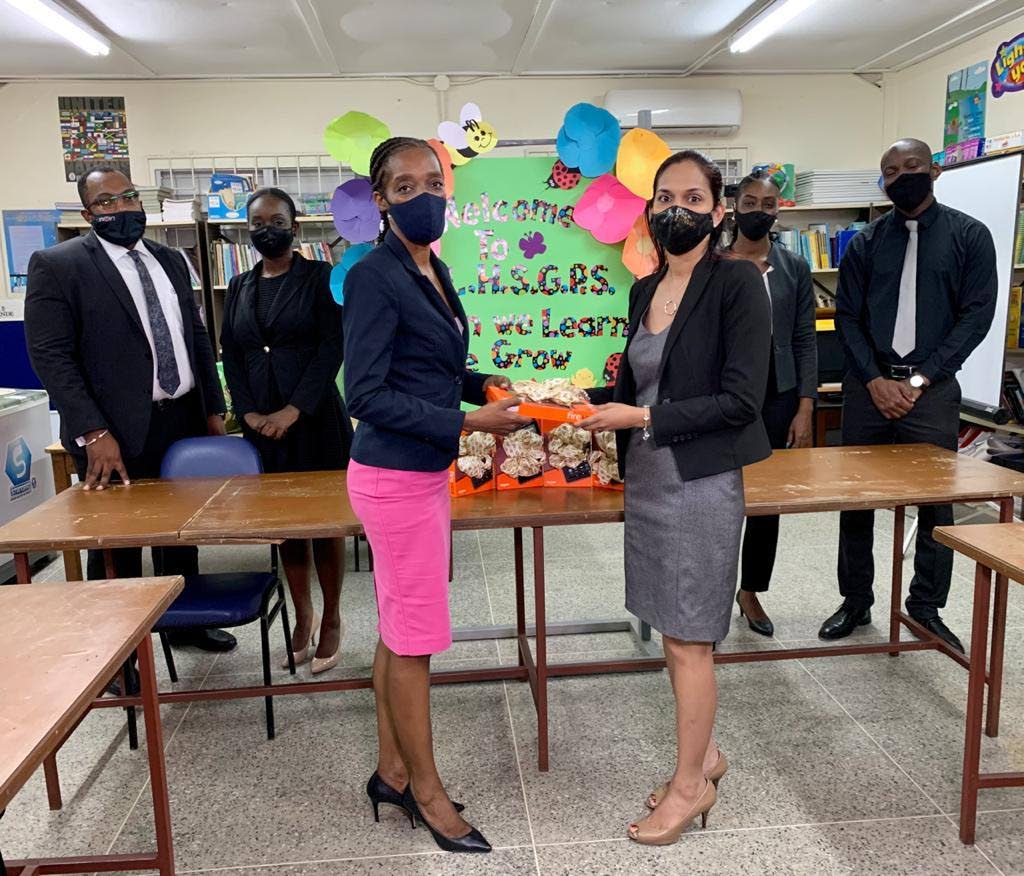30,000 students still without devices for online classes

As the new school term is set to open on Monday, the Ministry of Education (MoE) said there were still nearly 30,000 students without access to devices to undertake schooling.
The covid19 pandemic has pushed teaching from a physical and classroom setting to an online platform but has also posed added challenges for student without devices, internet connectivity and working around the learning curve.
Education Minister Nyan Gadsby-Dolly told Sunday Newsday via WhatsApp that data collected in October showed that the initial figure of students without devices which stood at nearly 65,000 has decreased through government's adopt-a -school initiative.
She said, “Through the adopt-a -school programme, over 21,000 devices have been pledged, of which 10,000 have been delivered thus far. The government’s procurement process for 20,000 laptops has begun through iGovTT.”
Gadsby-Dolly said it was a curve ball for all stakeholders to transition into the new mode of teaching, but efforts were being made to rectify them.
Some of the challenges, she highlighted were the management of the package-distribution system, continued training and access to online resources for teachers, parents and students, the need for completion of physical labs for school-based assessments (SBAs), the logistics of school administration and supervision in the remote environment and conversion of data-collection instruments to online systems.
“As expected, the response to online learning has been mixed. It is challenging for everyone; however, there has been almost complete acceptance of this methodology as our best option to continue the education of our children, and general agreement that it gets easier with practice and experience.
“As more students connect to the online environment, the issues surrounding resources and management of packages is expected to decrease. This has remained quite difficult throughout the first term, especially in the secondary school system. Some schools and parents, however, have handled it masterfully,” she said.
To combat this and several other hiccups, the ministry said online training for teachers will continue in January, with an emphasis on content creation through the NotesMasters software, as well as online training for students and parents.
Further development to fully digitise the education system was ongoing with several management platforms for the school’s administration, principals and teachers to have access and control over data. This, she said, was being done through ministry's learning management system.
Gadsby-Dolly said, “A facile, digital data collection solution is being piloted in January and will be implemented during term two. This is the start of the conversion of school records to digital format, which will be implemented phase by phase until the physical cumulative cards, attendance registers and performance data are all collected and submitted digitally.
“This will bring the data collection of the (ministry) in line with current methodology and allow for the type of analysis that can identify emerging issues, trends and patterns that will allow for more efficient monitoring of our schools, their performance, and our responses.”
Additionally, she said the ministry was also seeking a competent company to develop digital, self-directed numeracy and literacy solutions and the ministry's learning management evaluation committee was looking into implementing a system for the use of eBooks.
“These programmes are to be integrated into the resources available to teachers, students and parents so that our students can reap the benefits associated with individualised learning systems both at school and at home, and we can increase the levels of performance in these fundamental areas. This will be further elaborated as the year progresses.”
Other areas of interest included the design of the quality in education project and an intervention system to bring about improvement in the areas of deficiency, which be worked out in detail later this year.
Gadsby-Dolly also noted that curriculum reform and SEA model will be addressed based on contributions from the national consultation in education.
“Over 10,000 written and survey responses were received, and those will be reported to Cabinet by the end of the month, with the requisite recommendations for its consideration,” she said.
And with students who are set to write examinations in 2021 – Secondary Entrance Assessment (SEA) and Caribbean Secondary Education Certificate (CSEC), physical classes will resume from February 8.
This physical setting does not apply for people writing CSEC’s January examination which runs between January 17 and February 4.
Gadsby-Dolly said many schools had sinks installed for CSEC and SEA examinations last year and provisions were being made to outfit the schools with the necessary sanitising stations.
“Plans are progressing as they annually do for CXC January exams. With the physical access to school by exam students, labs for SBAs will be prioritised,” she said.
The Prime Minister has said in early December that if the number of covid cases remained low after the Christmas holidays, the plan was to allow students preparing for SEA and those in Forms Four to Six to return to physical classes by Feburary 8, with shorter class times.


Comments
"30,000 students still without devices for online classes"